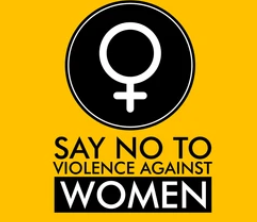The local authorities in Eastern Equatoria State’s Ikotos County have blamed harmful and negative cultures for hampering the fight against gender-based violence (GBV) among the communities.
Tito Abas Omoro, the county’s executive director, told Radio Tamazuj on Friday, while initiating a 9-month project on ending GBV, that the proliferation of illegal firearms in the hands of unauthorized individuals increases the chances of gender-based violence.
The project, implemented by Root of Generation Organization with funding from the Norwegian People’s Aid (NPA), aims to reduce gender-based violence cases in the area by creating awareness in grassroots communities.
“We have the issue of forced and early marriages, which is very high. We still have domestic violence and a lot of things that we should remove from our communities. The only thing is awareness and law enforcement, but the challenge is that people still have small arms,” he said. “We have chiefs from the payams, bomas, and all these levels, but they are afraid to act when somebody takes another’s daughter by force. You cannot help because you are helpless and very vulnerable.”
“So, we still have challenges with our people on the ground, but through awareness, we shall reach there,” Abas added.
He urged the young people to adopt a positive attitude in life and stop following negative cultures that retard development.
For her part, Victoria Sadia, the women’s leader in Ikotos County, admitted that issues of girl child compensation are still rampant in remote areas and being practiced quietly underground in towns.
“Girl child compensation is happening, but here in town, it is rare because of frequent awareness campaigns. We do not have the resources to reach other payams, but the practice is reducing a bit in town,” she said. “They also do not say directly that the child (girl) is being given to another family as compensation for the crime of her father; they do it underground. Most of the chiefs and women’s bodies are now against the practice.”
“It is not this child who committed a crime, so the suspect should be the one handed over to the government,” Sadia added.
Meanwhile, Musa Leonel Aburas, the coordinator of the Root of Generation Project, said advocacy against gender-based violence is critical given the high prevalence of cases.
“We have a lot of issues to do with early marriages, violence in relationships, rape cases, and forced marriages among other cases we want to address. In the next 9 months, we will have community activities, income-generating activities for the community, and train police and prison officers and the judiciary on how to handle those cases. We will have a desk at the police stations.”
Aburas added: “This is just the beginning of the project, and we are very happy to be welcomed here.”




